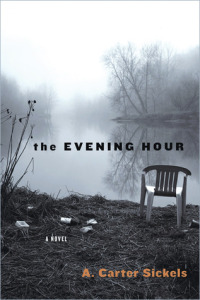The Odds by Stewart O'Nan
 Tuesday, January 17, 2012 at 6:24AM
Tuesday, January 17, 2012 at 6:24AM 
Published by Viking Adult on January 19, 2012
Art and Marion have serious financial and marital problems. After thirty years of marriage, they are returning to Niagra Falls, not for a second honeymoon but for a final hurrah before their bankruptcy and a divorce that they hope will shelter their assets. Art and Marion are not a happy couple. Art views a minor bus accident as a missed opportunity to die. Marion has perfected the art of ignoring Art. Although Art adores Marion, she has never forgiven his affair with Wendy Daigle twenty years earlier, while he never even noticed her retaliatory fling with her friend Karen.
Although they plan to divorce, Art and Marion may or may not continue seeing each other -- deciding their mutual fate seems to be one of their reasons for taking this trip. Art loves Marion and clearly wants to be with her. Marion doesn’t seem to know what she wants as she vacillates between doing nothing to encourage Art and (less successfully) doing nothing to hurt him. The novel’s hook is a gambling scheme that might rescue their finances and perhaps their marriage, although the scheme is, for the most part, relegated to the final pages. Throughout most of the story, Art and Marion are sightseeing or getting ready for dinner.
The narrative is like an intricate dance as Art and Marion move around each other, approach and then distance themselves, rarely saying what they are thinking, topping off thirty years of imperfect communication with a last effort to rekindle a connection that may no longer exist. If Marion is finally ready to start forgiving Art, he can’t read her well enough to overcome his wariness: so many of his overtures have been rejected during her “long, bitter stretches of indifference” that he hesitates to risk another. Marion is maddening in her “now I love you, now I don’t” approach to her relationship with Art, making it difficult to understand what Art still sees in her. They both have “a genius for self pity.” Art is driven by guilt of twenty years standing while Marion’s life is largely defined by regret. Is that enough to sustain a novel? Barely.
The Odds is more interesting than captivating, in part because it’s difficult to form an emotional connection to Art and Marion. Stewart O’Nan convincingly illustrates the stagnation of marriage but it’s almost painful to read about two people who, after thirty years together, are either unable to communicate or communicate all too well. Art needs to grow a spine while Marion needs to give her grievances a rest. It becomes wearisome to read about two people who are so entrenched in misery, although O’Nan makes the story bearable with his snappy prose and lighthearted approach. He fills the novel with pithy remarks like “His idea of gallantry was ignoring her shortcomings, which only drew more attention to them.” The ending is a bit abrupt, the story of their marriage unresolved, but that’s life. On the whole, this is a novel I can recommend for its funny moments and for the shrewdness of O’Nan’s observations and but not so much for the story it tells.
RECOMMENDED


